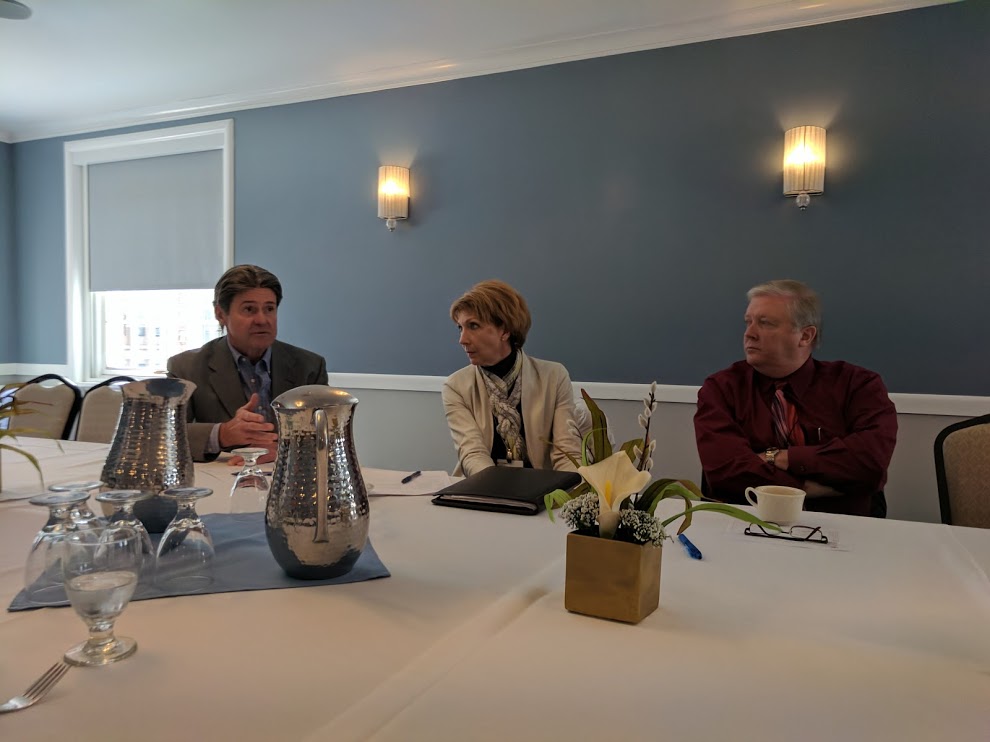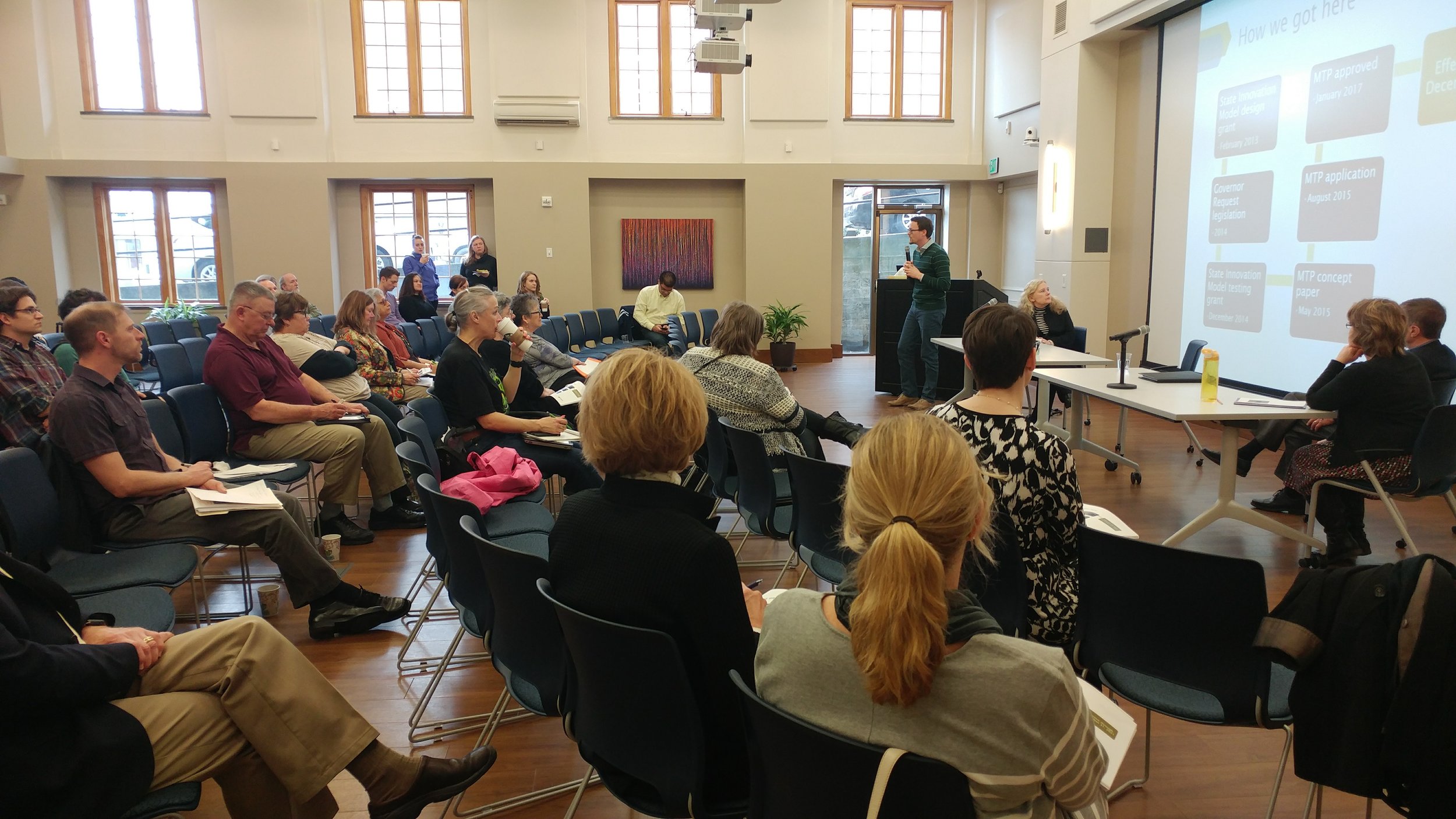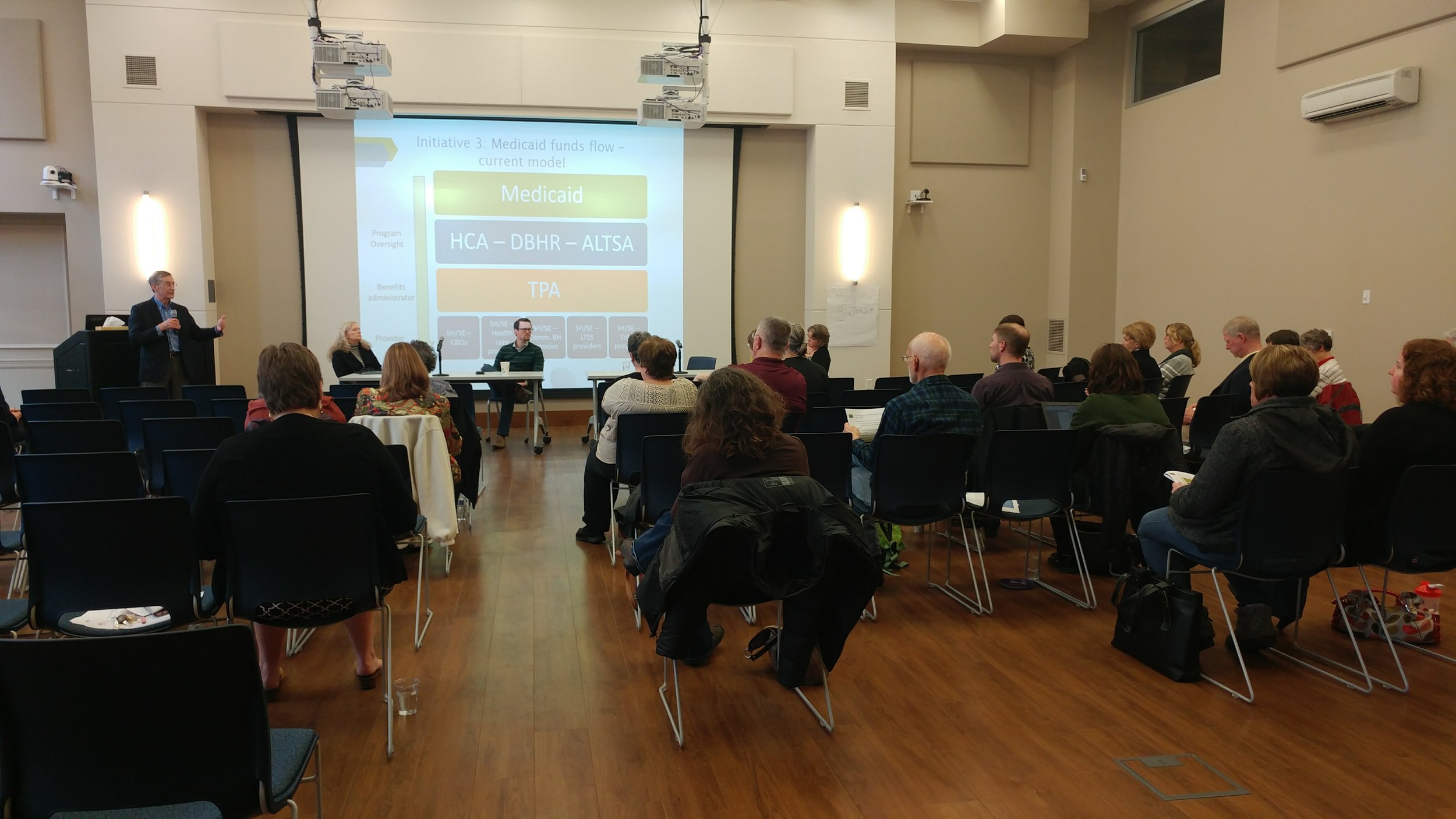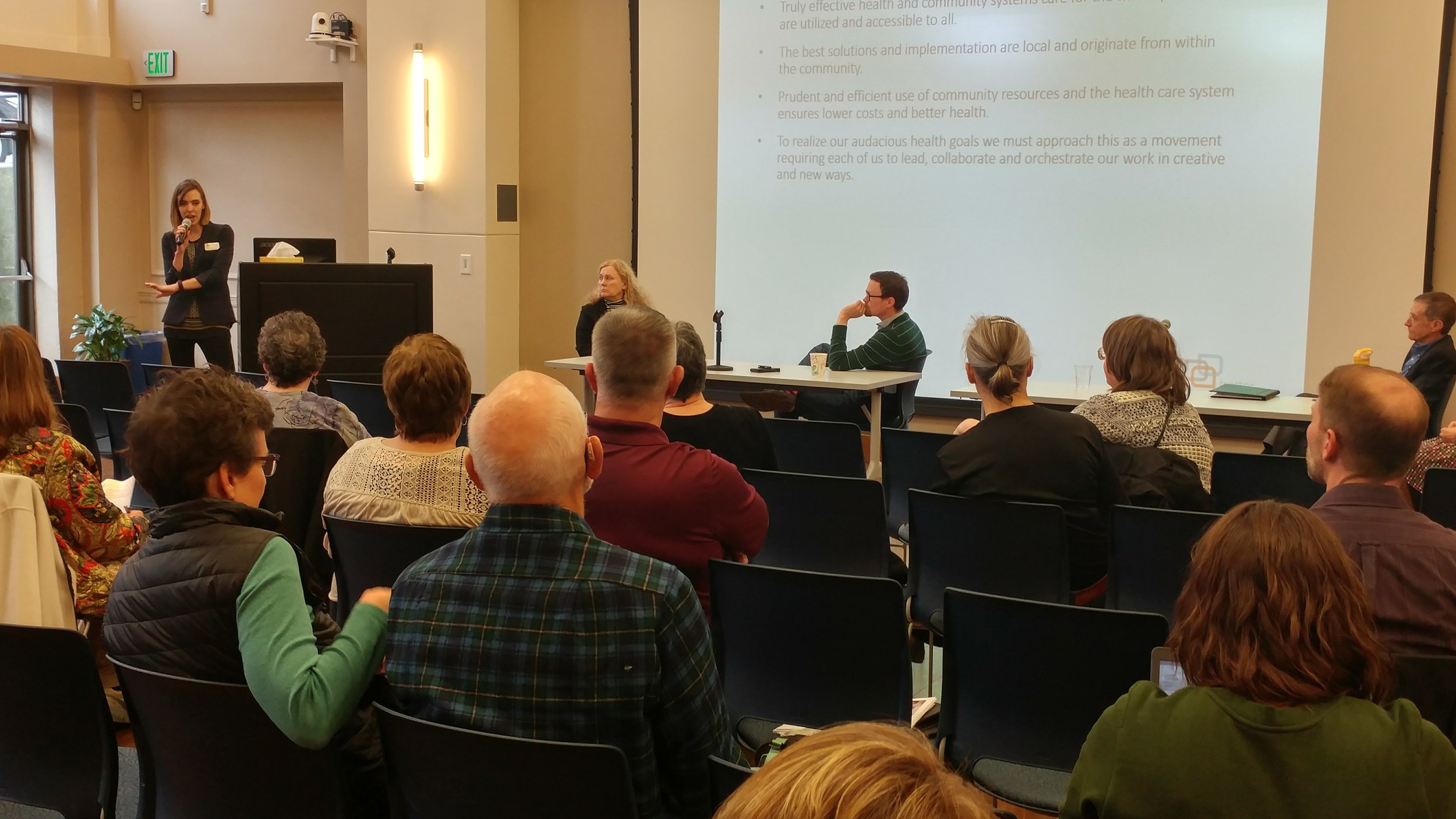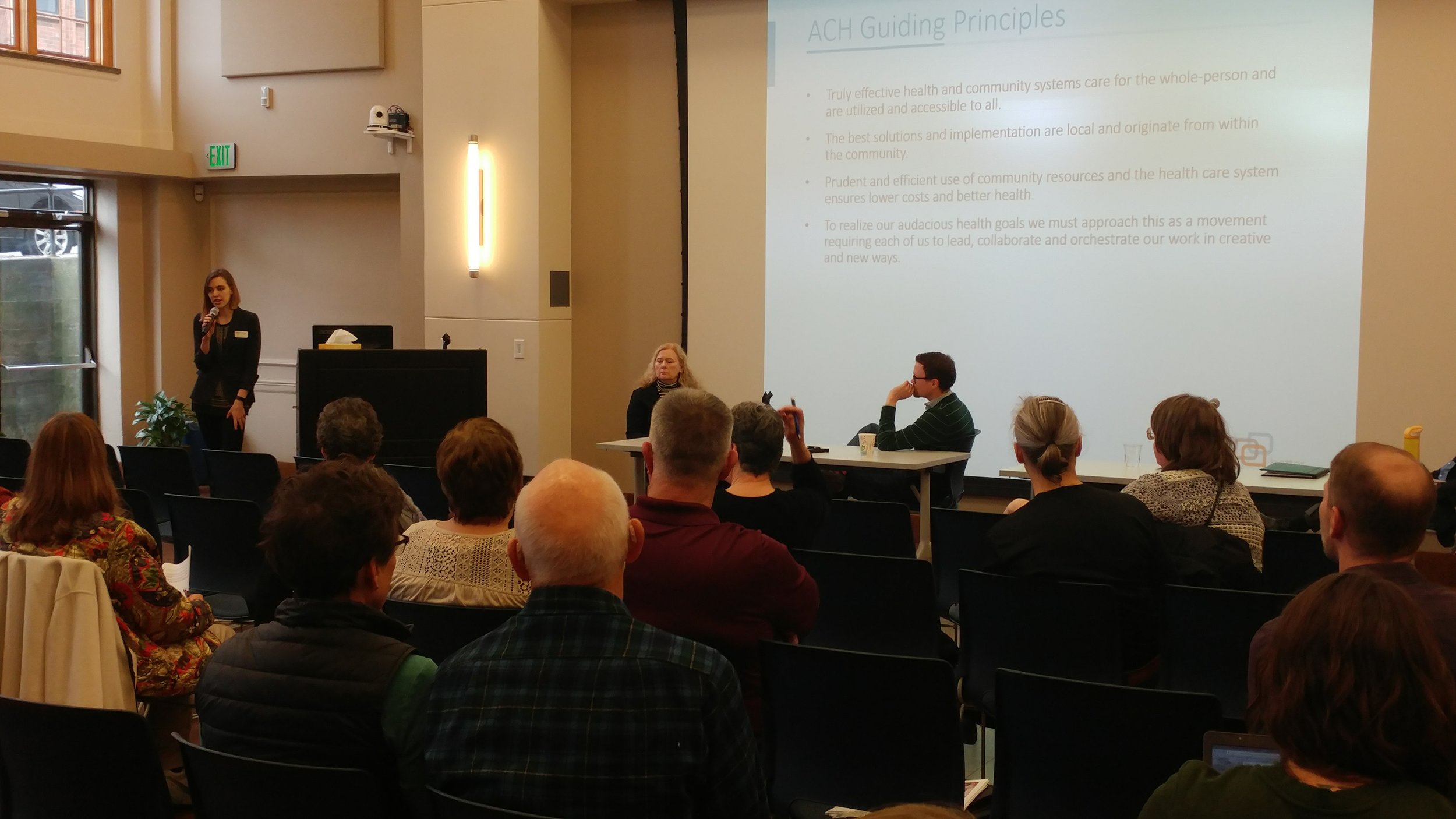Better Health Together has intentionally built a multi-tiered governance structure with distributed decision-making, joint ownership and mutual accountability that drives innovation and creativity, and fosters co-investment that leads to results, not process. This structure rests on our partners aligning around a common agenda with mutually reinforcing activities, and continuous communication between all parties.
The Standard Terms and Conditions of the Medicaid Demonstration specifically call out requirements for ACH engagement with stakeholders and opportunities for community feedback. To these ends, the Better Health Together ACH is establishing more robust protocol for membership as a Leadership Council Organization or Health Champion to ensure we meet these requirements. All meetings will remain open to the public, however there will be specific requirements to be considered a Member Organization.
Leadership Council
Leadership Council Meetings are open to all organizations located or delivering service in the BHT Region. This is an open forum for community members to receive and share updates on ACH work and activities in the region. These meetings will always remain public.
Membership within this council is granted at an Organizational basis. To be considered a member of the Leadership Council as the strategic synthesizer for the ACH, your organization must sign an ACH Community Commitment form. This indicates your organization’s alignment with our Regional Health Priorities and commitment to collaborating on health improvement. Members are expected to have representatives participate in at 2 out of every 3 Leadership Council meetings.
If attendance requirements are not met, members will be flagged as "Disengaged." This is an internal designation only, which signals to ACH staff that this organization needs outreach to stay up to speed. If outreach cannot be met, membership and voting rights will be suspended after 3 missed meetings. Membership can be reinstated after contact and catch up with BHT staff. With the incredibly fast pace of information flow, this structure ensures everyone at the decision making table is equipped with the latest information.
Health Champions
Similar to Leadership Council, starting 2017 we will be asking Coalitions to sign a Community Commitment form, and formalize their organizational members in order to meet Health Champion status. Health Champions do NOT have a vote at the Leadership Council level, because it is expected all organizations making up the coalition would be members.
Rural Health Champions Expectations:
Each Rural Health Coalition has a slightly different structure to meet the unique logistical needs of their community. Better Health Together Staff will work with Coalition members to design a Rural Health Coalition (RHC) engagement structure that is consistent with each Coalition’s unique needs while meeting minimum requirements for the ACH.
BHT will ask each RHC to designate a Coordinator and Ambassador.
The Coordinator is responsible for scheduling, logistics, agenda, attendance and minutes for each meeting. The Coordinator could be a BHT staff member OR coalition member.
The Ambassador represents the County Coalition at the Leadership Council level, and maintain the following responsibilities:
- Attend ALL Leadership Council Meetings (in person OR by webinar) or designate a proxy when unavailable, to ensure coalitions are always represented at Leadership Council meetings.
- Sharing any updates of concerns from the County Coalition, speaking on behalf of coalition interests in Leadership Council discussions and reporting back to Coalitions with updates and any opportunities for action or next steps
- Attending Quarterly All-Coalition check in call - June 26th, 2017
- Recruiting new members to Coalition based off of community and engagement goals, with strategic alignment from Leadership Council membership requirements
BHT Staff can serve in the coordinator role where coalition does not have local capacity; Coordinator and Ambassador can be the same person, however BHT staff may NOT serve in the Ambassador role.
BHT Staff is available to support coalitions in the following capacity:
- Staffing, scheduling, creating agendas, taking minutes and attendance
- Writing By-Laws and designing structure
- Supporting and training an Ambassador and Coordinator
- Providing clarity on ACH activities
- Staff quarterly All-Coalition call between each regions Coordinators/Ambassadors
Spokane Health Champions Expectations:
Spokane County, as an urban center, has many active and robust community coalitions centered around key community health issues and priorities. To capitalize on the momentum and expertise these groups have already gathered, ACH Staff will staff a Spokane Health Champions coalition, formed as a quarterly call between Spokane based coalitions. Examples of this would include collaborative that are not a standalone organizations, and therefore can’t be a standing LC member.








